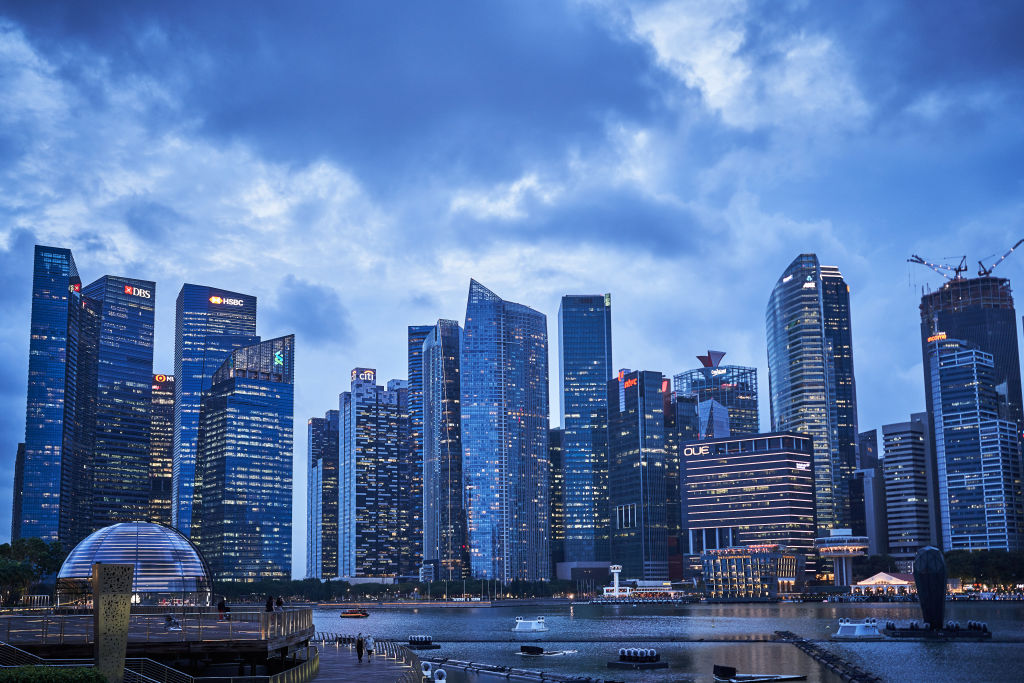
Singapore introduced a new parliament bill on Monday that empowers the government to investigate and stop foreign actors from influencing national politics and inflaming social issues, in the latest move to assert control over potentially threatening content online.
The Foreign Interference (Countermeasures) Bill will give officials the power to order social media platforms like Facebook Inc. and Internet service providers to disclose harmful information it suspects may be carried out by foreign actors or entities, the Ministry of Home Affairs said in a statement.
The new legislation comes two years after the passing of Singapore’s anti-fake news laws, which has allowed the government to direct these providers to block online content not in the public interest. Social media providers have openly expressed concerns over this law, saying government actions taken since its passage in 2019 contradict the claim it would not be used as a censorship tool.
Singapore’s ministers have long defended the need for these laws and the latest bill, saying the country is especially vulnerable to fake news and hostile information campaigns given that it is plugged into global trade as a financial hub, has a multi-ethnic population and enjoys widespread Internet access.
“The bill will strengthen our ability to prevent, detect and disrupt foreign interference in our domestic politics conducted through hostile information campaigns and the use of local proxies,” the ministry said.
Hostile Activities
The legislation, which is likely to be passed due to the ruling party’s parliamentary majority, also allows the government to order social media and Internet providers to carry a message to warn Singapore citizens about hostile information campaigns. “This is especially necessary when the content can cause immediate and significant harm in Singapore, such as inciting violence or causing hostility between groups,” the ministry said.
If the government has reason to believe that social media or Internet user accounts are being used for such hostile activities, it will be able to order providers to block content in these accounts from being viewed in Singapore.
The home affairs ministry, which sponsored the bill, sought to reassure the public that the new legislation doesn’t apply to citizens airing their views on political matters, “unless they are agents of a foreign principal.” Neither would it apply to foreign individuals and publications commenting and reporting on Singapore politics “even if their comments may be critical of Singapore or the Government.”
The bill, which was submitted for first reading, also included the following provisions:
In introducing the bill, the ministry cited examples of foreign actors carrying out campaigns online that have discredited or supported certain candidates ahead of the U.S. presidential elections last year. Similar campaigns have spread skepticism over Western-manufactured vaccines used to safeguard against Covid-19.
The Select Committee on Online Falsehoods had warned that foreign state-linked disinformation efforts were probably happening in Singapore, the ministry said. It pointed to an abnormal spike in online comments critical of Singapore on social media when the government faced bilateral issues with an unnamed country in 2018 and 2019.
“Our laws need to evolve, just as other countries have introduced new laws to tackle foreign interference,” the ministry said. “This Bill will strengthen our ability to counter foreign interference, and ensure that Singaporeans continue to make our own choices on how we should govern our country and live our lives.”
More Must-Reads from TIME
- Donald Trump Is TIME's 2024 Person of the Year
- Why We Chose Trump as Person of the Year
- Is Intermittent Fasting Good or Bad for You?
- The 100 Must-Read Books of 2024
- The 20 Best Christmas TV Episodes
- Column: If Optimism Feels Ridiculous Now, Try Hope
- The Future of Climate Action Is Trade Policy
- Merle Bombardieri Is Helping People Make the Baby Decision
Contact us at letters@time.com